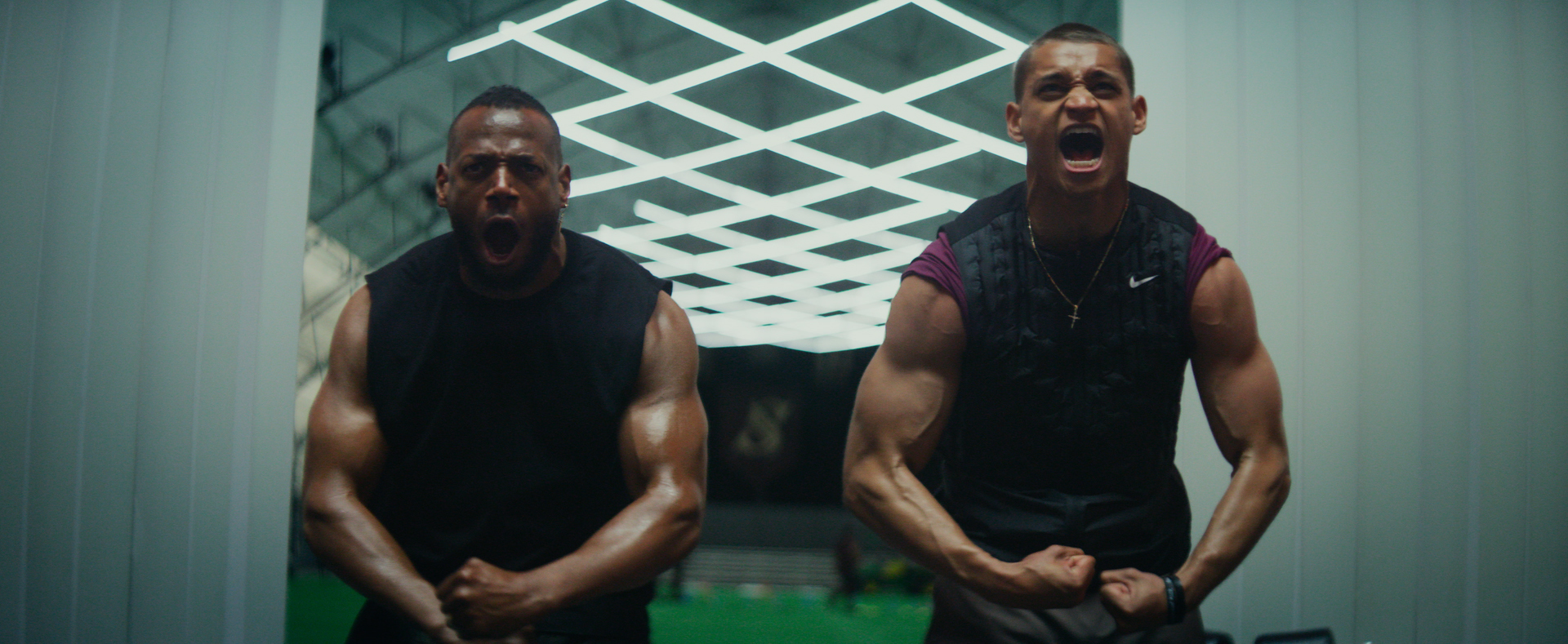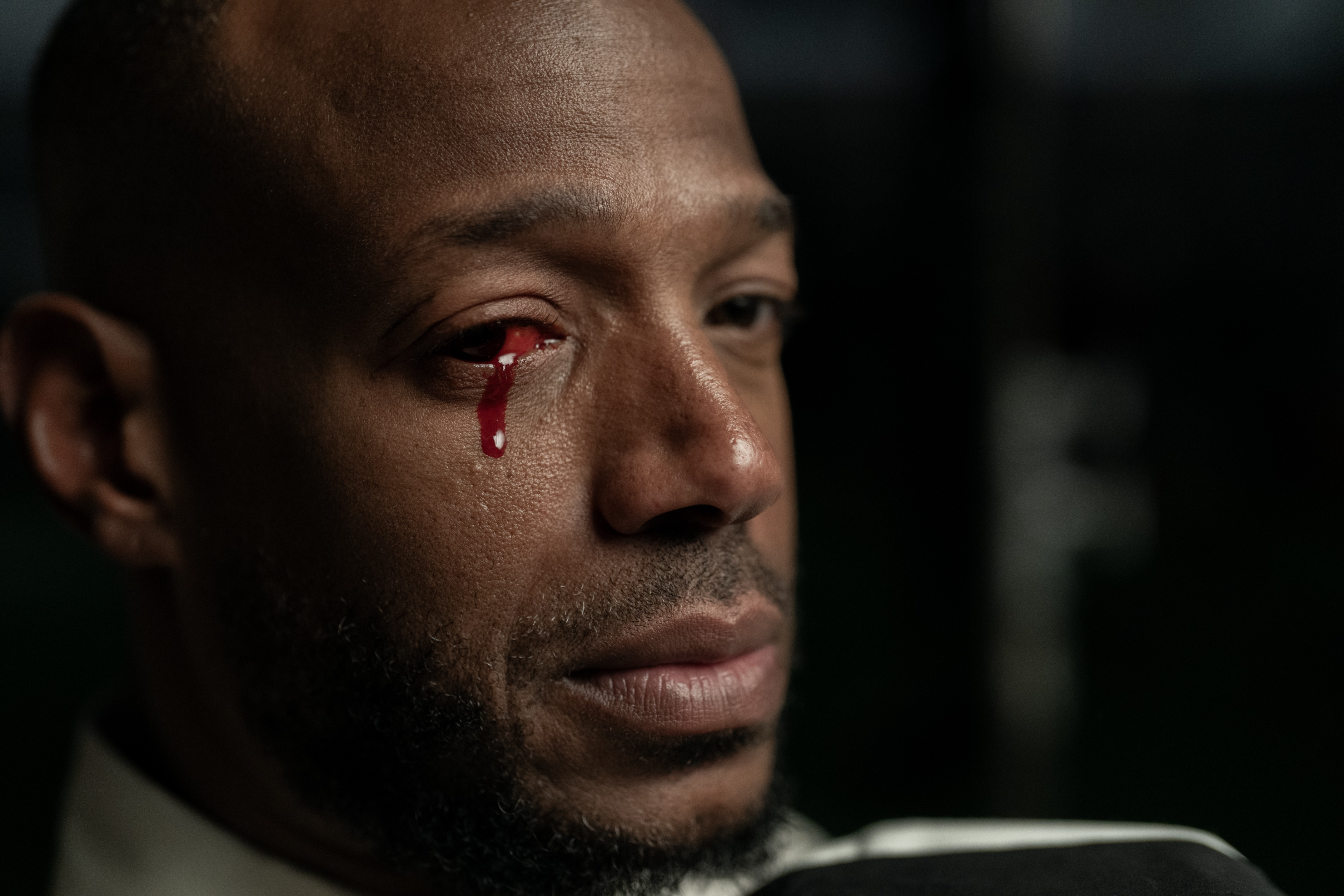
Where Horror Gets Studied, Skewered, and Celebrated.
Newest articles and reviews
HIM Turns the Game We Love into the Nightmare we Ignore.
By. Professor Horror

Justin Tipping’s HIM is a horror movie in shoulder pads. Produced by Jordan Peele, it blends the ritualistic violence of football with the ritualistic violence of horror, leaving us to wonder whether there’s much daylight between the two. It’s a film that treats the gridiron not as a field of dreams but as a cathedral of sacrifice, where bodies are broken and legends are crowned. I found myself conflicted. The movie is visually breathtaking and full of powerhouse performances, but its story put me on the fifty-yard line between awe and meh. Much like the sport it depicts, HIM dazzles with spectacle even as it reminds us that this is a world where they crown you fast and forget you even faster...because sports is theatre with real consequences.
The story begins in Cameron Cade’s childhood, where the San Antonio Saviors’ quarterback Isaiah White (Marlon Wayans) is worshipped as though he’s the second coming of Christ. Cameron’s family doesn’t just cheer for him...they’ve built a literal shrine around him. Even when witnessing Isaiah sustain a gruseom on field injury, Cameron’s father seizes that moment to sermonize about what “real men” do: they sacrifice their bodies. This indoctrination sets the tone for Cameron’s life. By the time he grows into a star prospect (now played by Tyriq Withers), Cameron is expected to be the next Isaiah. But one crushing head injury later, the future isn’t so certain. Doctors warn him that another concussion could be a career-ending Hail Mary, so playing a sport with so much physcial contact seems like a bad idea. However, the crowd warns him not to squander his chance, his father’s ghost warns him not to be weak, and everyone else just wants him back on the field.

This tension leads him to Isaiah’s desert compound, a place that looks equal parts training facility, temple, and haunted house. Isaiah presides like a cult leader, surrounded by unsettling décor: taxidermy, animal skulls, sauna chambers, and a football throwing machine so powerful it might as well be a weapon. His wife (played by Julia Fox) stalks the hallways wielding jade crystals and self-help jargon like a sideline sorceress. Outside the gates, fans scream and plead as if waiting for communion, furious that their messiah might retire. It’s both absurd and terrifying, but overall a reminder of how fandom curdles into fanaticism. What makes these sequences so effective is the way the camera never lets Cameron breathe. It circles him, pins him, stalks him like a defensive back waiting for the sack. He’s never just a person. Instead, he’s a spectacle, constantly observed, constantly measured. The effect is suffocating, and it mirrors what it means to be an athlete in the modern era. Players are never off-stage. Whether it’s TV cameras, sports radio, social media, or the ever-present “eye in the sky” of fans watching from the stands, their bodies are public property. Tipping leans into that sense of constant surveillance until the audience itself feels implicated. We’re not just watching Cameron, but we’re part of the system that demands his performance.
When Cameron does finally find moments alone, the film slips into hallucination. He sees grotesque mascots, warped superfans, and figures that feel like football’s subconscious given flesh. These apparitions are both literal symptoms of trauma and metaphors for the absurdity of sports culture. The mascot that looms in the shadows might be a pagan demon, or it might just be the embodiment of what happens when human devotion tips into mania. Either way, Cameron can only collapse in private because under the bright lights he has to wear the mask of health and invincibility. The hallucinations work because they echo the truth: football players are never permitted to be broken in public.

The horror elements lean hard into the religious undertones. Isaiah’s compound feels like a church, complete with sacraments (injections), rituals (endless drills), and confessions (Cameron’s whispered prayers). The parallels aren’t subtle, but they are effective. Football here is worship, and Isaiah is both priest and false idol. When the training intensifies to a near-lethal degree, it feels less like preparation for a game and more like a sacrificial rite. The film wants us to ask: are we witnessing the making of a star quarterback, or the slow ritual destruction of a young man’s body? Stylistically, HIM is a highlight reel of nightmares. The cinematography by Kira Kelly captures football imagery as if it were occult symbolism: goalposts framed like devil’s horns, footballs spinning in eerie slow motion, tackles rendered as X-ray shocks that expose bone and tissue breaking in real time. These striking visuals don’t just heighten the horror...they also set the stage for Marlon Wayans, whose presence fills the screen with the same larger-than-life menace as those images. Delivering a career-best performance as Isaiah, he is equal parts charming, manipulative, and terrifying, as we see a man who knows he’s aging out of the game but refuses to stop playing.

And yet, for all its dazzling plays, the film sometimes fumbles. The plot doesn’t always hold together, and Cameron’s passivity makes it hard to know what he truly wants. At times, it feels like the filmmakers had a whole playbook of ideas but couldn’t decide which to run. Still, the ambition is undeniable, and even its flaws feel like the messy bruises of a sport that’s all about impact. I left the theater struggling to settle my feelings, the way you do after a hard-fought overtime loss. That’s partly because I’m not just a film critic...I’m also a football fan. I love the pageantry, the strategy, the adrenaline of the game. But this movie won’t let me ignore what I usually try to tuck away: the brutality, the reliance on disposable bodies, the cultish devotion that leaves little room for humanity. HIM holds up a mirror to all of it, and refuses to let me cheer without also confronting the cost. It forces me to reckon with why I love a game that so often destroys the very people who play it.
The film is currently in theaters and already dividing audiences. Some will call it a fumble, others a touchdown. But it’s undeniably a spectacle. Go if you love horror. Go if you love football. Or especially go if, like me, you love both and can’t quite untangle how you feel about it.
Grubby's Hole
About Professor Horror
At Professor Horror, we don't just watch horror: we live it, study it, and celebrate it. Run by writers, critics, and scholars who've made horror both a passion and a career, our mission is to explore the genre in all its bloody brillance. From big-budget slashers to underground gems, foreign nightmares to literary terrors, we dig into what makes horror tick (and why it sticks with us). We believe horror is more than just entertainment; it's a mirror, a confession, and a survival story. And we care deeply about the people who make it, love it, and keep it alive.